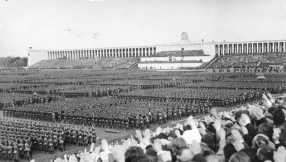
The book of Esther may not explicitly mention the name of God in its pages, but it undoubtedly showcases God's hand upon His people.
One key figure in the book of Esther, a man named Mordecai, is someone we should know and learn from. He gives us various lessons, all of which are valuable to walking in God's plan for our lives.
Who is Mordecai and what can we learn from him? Let's talk about that.
A cousin who became father to a future queen
Mordecai is first mentioned in Esther 2:5 as the son of Jair and a Benjamite. He brought up his cousin Hadassah as his own child after she lost her parents (see Esther 2:7).
Mordecai was a responsible cousin who exercised fatherly care over Hadassah. He gave her wise counsel not to reveal her being a Jew, and daily looked out for her while she was being prepared to meet the king, who was looking for a new queen.
Hadassah would soon become Queen Esther, wife of the Persian King Ahasuerus.
A vigilant servant who was content to do his job well
Esther 2:19 tells us that Mordecai served "within the king's gate." He helped protect the king by exposing a plot against his life, telling it to her cousin Esther who in turn relayed it to the king. (Esther 2:21-23)
Although his act that saved the king's life was recorded, Mordecai was not rewarded for it. He did not receive any honor for foiling a plot against the ruling king. Instead of complaining about it, however, he remained content to do his job within the king's gate.
A Jew who wouldn't bow down to the enemies of God's people
There was a man that King Ahasuerus promoted to a high degree, to the extent that all men in the citadel of Susa should bow and pay homage to him.
This man, Haman, was the son of Hammedatha, an Agagite. He was an Amalekite.
While all the people bowed down to him every time he passed by, Mordecai wouldn't. His reason? He was a Jew.
Amalekites are enemies of the Jews. Exodus 17:16 tells us,
"Because the Lord has sworn: the Lord will have war with Amalek from generation to generation."
Mordecai would never bow down to God's enemies.
A God-fearing man who called his niece to stand up and fulfill her role in God's plan
Mordecai mourned upon hearing Haman's plot to exterminate the Jews. Instead of getting depressed and hopeless, however, he did what he needed to do:
He called Esther to stand up for their people, the Jews.
Mordecai knew that his cousin didn't become queen for nothing. He knew that God allowed it, so that they and their people -- God's people -- would be delivered from their enemies, just as He promised.
Thus, he told Esther these very famous words:
"Do not think in your heart that you will escape in the king's palace any more than all the other Jews. For if you remain completely silent at this time, relief and deliverance will arise for the Jews from another place, but you and your father's house will perish. Yet who knows whether you have come to the kingdom for such a time as this?" (Esther 4:13-14)
Lessons from Mordecai
Here are a few lessons from Mordecai's life:
1) We must be responsible and genuinely concerned for our families
Mordecai stood up to take care of his cousin after she became orphaned. He became a father, guardian, and counsel to his lovely cousin who would become queen.
And he didn't even ask her for any return for the care that he gave her.
2) We must obey God rather than man
Mordecai put his life in danger by not bowing down to a man, particularly one who was considered God's enemy.
When we are faced with a decision to obey man or honor God, we must honor and obey God. We will face opposition for it, but God is sovereign and in control of all things. We must follow Him.
3) We must do what God wants us to do
Throughout his life, Mordecai did what a God-fearing man would do.
- He took responsibility for his family
- He did his job excellently, even without a reward (though he was rewarded eventually)
- He urged his cousin-daughter to do what God purposed her to do
We ought to be like that: a people who would do what God wants.













